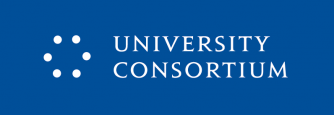Robert Legvold on the New Cold War
Samuel Ramani
Robert Legvold is a Marshall D Shulman Professor Emeritus at the Columbia University political science department. He is one of the world’s leading experts on the foreign policy of post-Soviet states, and a book reviewer for Foreign Affairs magazine. Previously, he served as the director of Soviet studies on the Council of Foreign Relations from 1978-1984, and as the director of the Euro-Atlantic Security Initiative at the Carnegie Endowment for International Peace from 2009-2012. Legvold agreed to sit down for an interview with me in Moscow on September 24, 2015. The transcript of the portion of our interview dealing with his theory of a new Cold War is below:
You have written a great deal about how Russia and the West are embroiled in a new Cold War. What is your exact definition of a new Cold War? And why do you believe Putin’s anti-Western tilt warrants this label?
Robert Legvold: First of all I would like to emphasize that my definition for the new Cold War is far from universally accepted in our field. But my forthcoming book makes the argument that it is justified. I think the new Cold War began the moment we went over the cliff, and that happened with the Ukraine crisis. I don’t agree with other new Cold War theorists like Edward Lucas and Mark MacKinnon who argue we have been in the new Cold War since Putin came to power. I think that view misunderstands either the Cold War or Russia’s relationship with the West. I trace this qualitative shift to be a result of what happened in Ukraine, with the Russian annexation of Crimea and Russia’s direct support for separatism in the Donbas. Going over the cliff did not happen suddenly though, it happened as a result of a series of steps that cover most of the post-Cold War period. I see it as a phased process, in which no one, including the leadership of Washington, Moscow and Berlin recognized the phases we were in.
You mention that the new Cold War developed gradually over the post-1991 period. What events in the 1990s precipitated the anti-Western tilt?
Robert Legvold: I think the new Cold War was rooted in policies from the George H.W. Bush and Bill Clinton administrations. It is important to note that Obama’s reset was the fourth time the United States has tried to reset relations with Russia. The ups and the downs in the past had elements among the downs that were pushing in this direction. Under Primakov, Russia began to have serious concerns about US policy towards Russia though this was often synthesized with considerable optimism about the future. These problems were there as early as the late Kozyrev era. But the origins of Russia’s resistance to America’s use of power in a way that undermined Russian interests came with Primakov’s depictions of a multipolar world. In 1998, it was not clear to me even when I talked to Primakov, whether he actually believed that the multipolar world was a reality that the Americans simply didn’t recognize, or whether it was a hope that he wanted to promote. In the end, Russia’s diplomacy with China and India went nowhere, and Russia was not realistically looking at this time to supplant the United States. But the grievances began with NATO enlargement in the mid-1990s. There was another flow against the relationship in 1999 during the Kosovo War, when the Russians took a critical stance against NATO in that context.
Vladimir Putin’s presidency began with a thaw in US-Russia relations. Why do you believe that this thaw was not sustainable? And what would you characterize as the breaking point in the US-Russia bilateral relationship?
Robert Legvold: George W. Bush’s presidency definitely started with a reversal of previous trends with 9/11, the Crawford ranch NATO-Russia council and the swallowing of the abrogation of the ABM agreement. But that very quickly gave way to tensions, with Russia’s opposition to the Iraq War. Russia gained the support of France and Germany on Iraq. The domestic scene in Russia after Beslan began to trouble the Americans, causing Bush to openly display his discontent with Putin. Russia’s democratic breakdown featured as an issue in the Slovakia 2005 summit. In 2007, Putin delivered a scathingly critical speech towards the United States, pulling all the complaints and frustrations of the Russians together. And then the war in Georgia sunk the US-Russia relationship to a new low point. Russia’s relationship with the West by then was dead in the water and was being dominated by many negative factors. One factor was the missile defense issue in Europe.
Even during the Obama period, there was attempt at a revival, and for a period of the reset, it was working. START II was a highlight as was the creation of a northern distribution network with Afghanistan. The agreement to tighten sanctions on Iran in Resolution 1929 was a benchmark the Obama administration set. The International Security Conference on Fissile Raw Material was also a success.
The failure to make serious progress on missile defense was the first sign of trouble though, as this was a major priority at the Lisbon-NATO summit, which Medvedev attended. In Libya, the Russians were upset about regime change but abstained from the mission for reasons of principle. I would argue that by 2011-12, with the anti-Americanism coming out of the presidential elections, hostilities had boiled over. Putin in 2012 told Obama in a telephone conversation that the problems were simply a consequence of electoral politics. But it turned out to be much more than electorally motivated, and Obama did not accept Putin’s argument as an adequate explanation. Everything that has characterized the current Russia-US tensions was in place before Ukraine. Iraq is where it got moving and Ukraine just pushed it over.
Rest of the article can be found here



